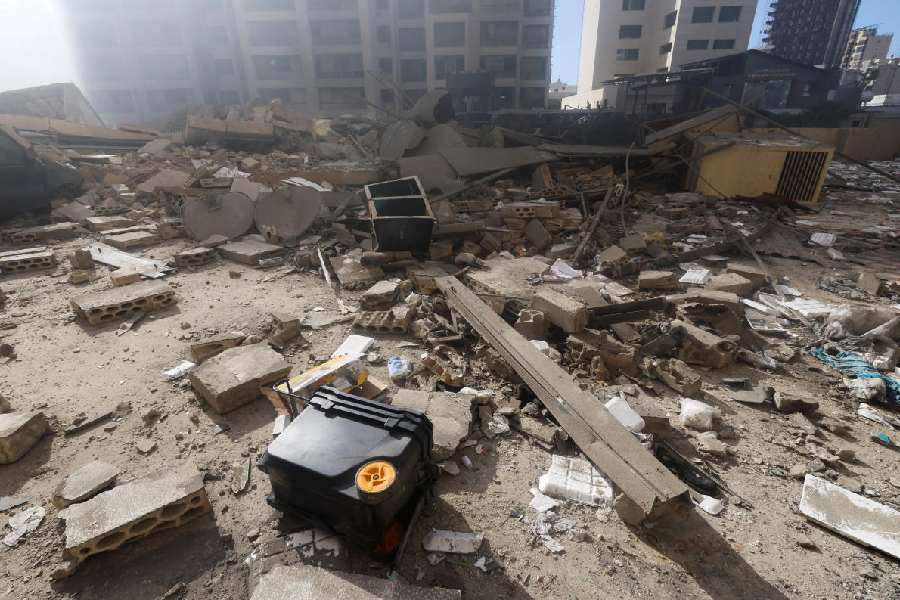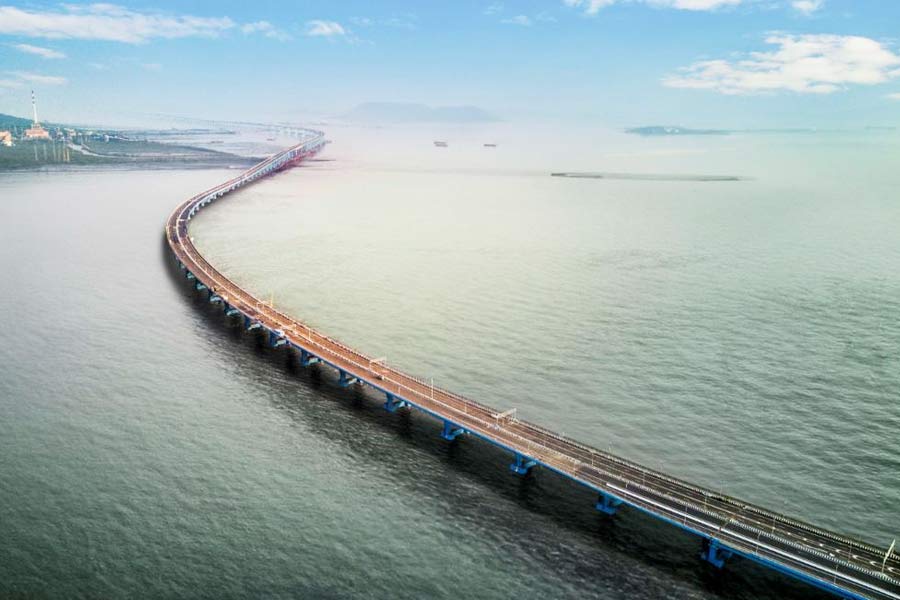The long-feared “wider war” in West Asia is here.
For the last 360 days, since the images of the slaughter of about 1,200 people in Israel last October 7 flashed around the world, US President Joe Biden has warned at every turn against allowing a terrorist attack by Hamas to spread into a conflict with Iran’s other proxy, Hezbollah, and ultimately with Iran itself.
Now, after Israel assassinated the Hezbollah chief, Hassan Nasrallah, and began a ground invasion of Lebanon, and after Iran retaliated on Tuesday by launching nearly 200 missiles at Israel, it has turned into one of the region’s most dangerous moments since the Arab-Israeli War of 1967.
The main questions now are how much the conflict might escalate and whether the US will get more directly involved.
The past few days may be a turning point. Since Israel killed Nasrallah on Friday, the Biden administration has been shifting from cautioning against a wider war to trying to manage it. Officials have defended Israel’s right to strike back at Iran, but are advising against direct attacks on its nuclear facilities that could tip the conflictout of control.
This is the spiral that Biden has cautioned against but has not been able to stop, even with major American forces inthe region.
“From Israel’s perspective, we have been in a regional war since October 7, and that war is now an all-out war,” said Michael Oren, a former Israeli ambassador to the US, a historian and one of the country’s more hawkish diplomats. “We are in a war for our national survival, period.” Winning over the next few weeks, he said, is a “duty” for a nation “created in the aftermath of the Holocaust”.
The unknown is how Prime Minister Benjamin Netanyahu of Israel will interpret that existential mission as he weighs how, not whether, to strike back at Iran.
Biden’s warnings started early, on his visit to Israel less than two weeks after October 7, to show solidarity after one of the most gruesome terrorist attacks of modern times.
That was before Israel obliterated Gaza from above and sent its military in on the ground, against Biden’s advice in a series of heated conversations with Netanyahu.
It was before Israel booby-trapped pagers and walkie-talkies used by Hezbollah that exploded across Lebanon, and before Israel not only killed Nasrallah but systematically decapitated much of the Hezbollah leadership.
It was before the administration hinted that Israel would join a 21-day ceasefire, only to be defied, again, by Netanyahu, who then turned around and authorisedthe strike that killed Nasrallah.
To Biden’s critics on the right, this is all the result of American hesitance, his unwillingness to back Israel unconditionally, to nuance every promise of aid with a warning not to make the mistakes the US made after the September 11 attacks.
To his critics on the left, what has happened in the past 10 days is another example of Biden’s failure to make use of American leverage, including the threat of withholding American weapons from Israel, after more than 41,000 people have died in Gaza.
To many Israelis, the escalation was inevitable, another chapter in a struggle for survival that began with the nation’s creation in 1948.
Netanyahu clearly has America’s blessing to retaliate.
At the White House on Tuesday, Jake Sullivan, Biden’s national security adviser, said the Iranian attack had been “defeated and ineffective”, largely because of the coordinated efforts of American and Israeli forces, who had spent months planning how to intercept the incoming missiles.
“We have made clear that there will be consequences — severe consequences — for this attack, and we will work with Israel to make that the case,” Sullivan told reporters.
Sullivan said the White House was consulting extensively with Israel, including with the Prime Minister’s Office, to formulate the appropriate response.
He emphasised the degree of communication, leaving unsaid the obvious.
Biden and Netanyahu barely talked as Israel invaded Gaza and took the fight to Lebanon. But once Iran, a lethal threat to Israel with military powers that Hamas and Hezbollah can only aspire to, directly entered the fray, America’s tone and strategy changed.
The behind-the-scenes negotiations now boil down to Netanyahu’s intent. Will he send another message to Iran about what Israel could do in the future, as he did in April when he aimed at military facilities in the holy city of Isfahan? Will he take out oil production facilities and ports?
Or will he aim directly for the facilities he has threatened to strike for years, starting with the underground Natanz facility where Iran is enriching uranium to near-bomb grade?
American officials believe they can persuade Netanyahu to make his point without setting off a full-blown war. But they concede that the Israeli Prime Minister may see the next five weeks until the American presidential election as a ripe moment to try to set that programme back by years.
After all, former President Donald J. Trump would not complain about a major attack on Iran’s military infrastructure, and Democrats cannot afford to be accused of restraining Israel after Tuesday’s missile attack.
“Israel will do its best to be disproportionate,” Gen. Wesley K. Clark, a former supreme allied commander of Nato, said on CNN on Tuesday. White House officials takethe opposite view: Netanyahu, they say, cannot afford to be anything but proportionate.
This new era runs many risks. There is the risk that Iran, frustrated by the failure of its missile force to break through Israeli and American weapons, will convince itself that it is finally time to race for a nuclear weapon, viewing that risky move as the only way to hold off an adversary who has penetrated iPhones and pagers and computer systems.
There is the risk that despite the election of a moderate-sounding new Iranian President, the Islamic Revolutionary Guards Corps will win the country’s internal arguments and double down on its missile programmes and agents of influence.
“A full-scale war, or even a more limited one, could be devastating for Lebanon, Israel and the region,” said Jonathan Panikoff, the director of the Scowcroft Middle East Security Initiative at the Atlantic Council.
“But from it, unexpected opportunities will also come — to undermine Iranian malign influence in the region, for example, by actively impeding its efforts to reconstitute Hezbollah. And a new administration should be prepared to take advantage of them.”
That is what old wars and hot wars do. They create new power dynamics, vacuums to be filled.
But there remains the danger that wider wars, once begun, take years to put back in the box. And the presence of nuclear weapons, ballistic missiles and an instinct to escalate creates a particularly toxic brew.
New York Times News Service










